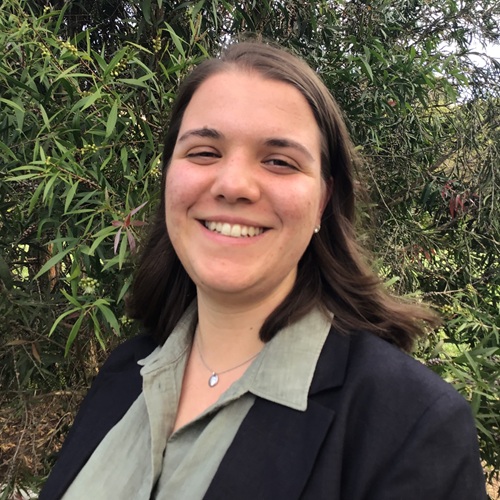ADCET Webinar: Understanding and Supporting Neurodivergent Students at University
As greater awareness leads to improved understanding and support for neurodivergent students, university-level support is becoming increasingly important. This webinar, presented by Teagan Menhenett, aimed to provide information for both university staff and students about neurodivergence. It introduced the concept of neurodiversity and explained key challenges neurodivergent students can experience in the university environment. This information provided a foundational understanding of key concepts, and included practical, easy adjustments that can be implemented.
The content of this webinar was drawn from a freely available Open Education Resource (OER) entitled “Communication and Teamwork Skills to Support Neurodiversity” which provided the backdrop for this webinar. Written by Deakin University’s Teagan Menhenett (Psychology student), Nick Milne (Associate Professor of Engineering) and Siva Krishan (Associate Professor of Engineering and Associate Head of School), the OER aims to support students with the transition to studying in a new environment. This OER focuses on assisting students with this transition by guiding them through different learning activities and information to support the team-based learning they will engage in during their degree, including scaffolded group activities, and discussion of communication differences. In addition, this OER has been developed with inclusivity in mind, with interactive activities, clear learning objectives, accessibility for screen reader technology, and easy-to-digest content.
The resources in this book were designed to be accessible for all students and staff, not just those studying Engineering, with the aim of developing an understanding of disability and neurodiversity, teamwork and communication skills, and the ability to work collaboratively with peers to achieve common goals. The resources shared here can be embedded within university subjects, or as standalone educational resources to support student skill development in inclusivity, engagement with others and the capacity to contribute towards highly functional teams.
Reflections and Strategies - Chat Comments
- Scaffolding, understanding which students struggle with multi-step instruction and being sure to offer them step by step with check-ins
- I've been using the pedagogies of kindness and compassion in my teaching, with all my students.
- We have [an] advocacy training program that [is] run by an Autism organisation for our students – training, teach them how talk about needs etc...
- Breaking assignments down into smaller, more manageable steps with students (and giving them mini due dates)
- I've adopted an approach from a colleague at my institution which is to include a 'statement of inclusion' at the beginning of a course, that acknowledges and welcomes us all as individuals and welcomes individual ways of engaging, expression and welcoming students to ask for things they need as and when they need them
- As a DLO I have long been wanting a resource for students to help support them with undertaking group work tasks rather than having to have a separate assignment as an adjustment which can often be more work for them too. This is a fabulous resource and I shall be sharing it with students far and wide. Thanks Teagan, Nick and Siva
- Helping students to plan their term ahead to ensure they can see the breathing spaces. Agree with breaking down tasks into small steps is wonderful to reducing overwhelm. Also being mindful that I'm not too heightened myself when supporting a student to reduce influencing their train of thought
- I work as a career counsellor / career educator, and learn so much from each individual I have the privilege of meeting/collaborating with to explore their career aspirations and hopefully help build their confidence, knowledge and skills to navigate their transition to employment, and how they can build their employability during their course. Each student is unique and I find it important to take the time to understand their needs, and as you said Teagan, to meet them where they're at.
- Deakin offers low sensory tours specifically for neurodiverse students - very well received!
- Murdoch does the same [offers low sensory tours] and advertises a certain time of day to be more low sensory (so the loud music is off, less people on campus, etc.) or people can request a private tour on a different day if that's preferred
- The I-CAN Network do a lot of work in High Schools- https://icannetwork.online/
Presenter

Teagan Menhenett (she/her) is currently completing a Bachelor of Psychology (Honours) at Deakin University, with aims to complete her Masters in Clinical Psychology next year. She has multiple mentor roles within the university and has spoken at events such as the Blue Tree project and Neurodiversity with Chloe Hayden. In addition to creating the OER, Teagan has led a project group to develop a training module for all Deakin student mentors on understanding and supporting their neurodivergent mentees. Within the broader community, she has extensive experience working with neurodivergent young people. Neurodivergent herself, Teagan is passionate about creating inclusive and accessible learning environments for all students.
(October 2025)
ADCET is hosted by the University of Tasmania

